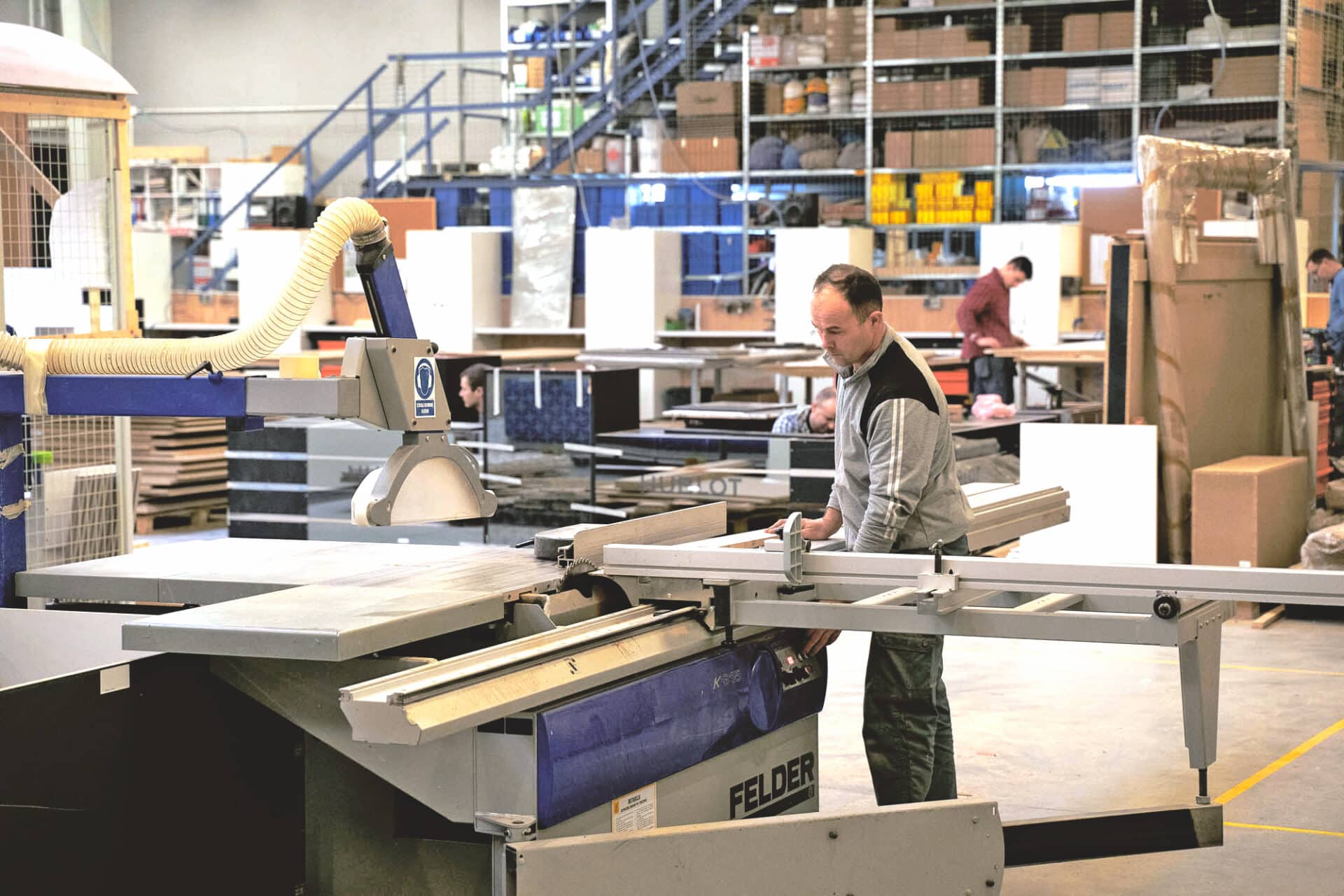2023 was a year marked by a decline in profits and workforce reductions in the Polish furniture industry. Despite maintaining a strong position in the international market, the situation is still challenging. The economic upturn might improve in the latter half of 2024.
A Year Marked by Declines
The Polish furniture industry found itself in a difficult economic cycle. According to a study by B+R Studio, based on GUS data, the last two years have seen the worst business climate in the furniture industry in two decades. The only time a lower rate was recorded than in 2023 (-6.8) and 2022 (-9.8) was in 2001 (-11.8). The sector’s situation was primarily impacted by high electricity and petrol costs, rapidly increasing wages, high inflation, and uncertainty related to the war in Ukraine.
The value of products sold by Polish furniture companies in 2023 was 64 billion PLN, representing a 6% decrease compared to 2022. Fewer orders and rising production costs started threatening business profitability. To salvage their companies and adapt to the reduced number of orders, furniture companies were forced to cut jobs. From April 2022 to December 2023, the furniture sector lost 18,000 jobs.
Foreign Markets
In 2023, Poland maintained a strong position in the international arena in terms of furniture production and export. We ranked sixth globally in the furniture production and second in exports. We also remained the largest furniture exporter in Europe.
Unfavorable global market conditions resulted in declines for the Polish industry in international trade. Export value decreased by 3% to 62.2 billion PLN last year. In terms of volume, foreign sales shrank by as much as 11%.
Prospects for 2024
All signs point towards the continued challenging situation in the furniture market. According to forecasts, the value of products sold will, at best, stay at the 2023 level (about 64 billion PLN). Lack of hope for improvement translates into plans for further cuts in employment. Preliminary estimates predict another 5,000 jobs will be cut in the furniture sector in 2024.
The industry is hoping for a slight improvement in the second half of the year, but a lot depends on the sector’s market environment, especially the domestic one. The most serious issues faced by Polish furniture manufacturers include access to FSC (Forest Stewardship Council) certified timber. In previous years, State Forests gradually moved away from this globally accepted certification, raising growing concerns among Polish manufacturers relying on timber. The FSC certificate is required by furniture distributors worldwide. If State Forests do not return to FSC certification, we can expect further declines in furniture production volume even by 20-30%.
Another factor hampering the recovery of the furniture industry is the wood sales system introduced by the previous State Forests management. Polish furniture manufacturers are calling for changes making it more transparent and accessible to entrepreneurs and promoting the wood processing in Poland.
Planned restrictions on obtaining timber also pose a potential challenge for the furniture industry. Setting aside 20% of forest areas from wood extraction requires smart, strategic cooperation among key stakeholders. Furniture manufacturers point to the ecological benefits of wooden products (low carbon footprint, long-term CO2 storage) and are reluctant to see this natural resource replaced by less environmentally friendly materials like plastic and metal. A possible solution could be allowing furniture manufacturers to use alternative timber sources, such as used wood, and limiting wood burning in favor of using it to produce derivative materials. This, however, requires legislative changes, which the furniture industry has been advocating for several years.
